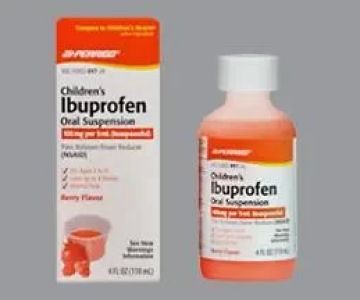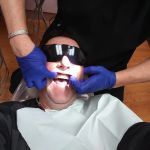What are Systemic Oral Steroids for Children?
Systemic steroids are a powerful class of medications that can be used to treat a variety of health conditions in children. These medications, often administered orally, work by reducing inflammation and suppressing the immune system. But what exactly does this mean for your child, and how does it work in their bodies?
How Systemic Oral Steroids Work
Systemic steroids, such as prednisone or prednisolone, are commonly prescribed to children to help treat conditions like asthma, autoimmune diseases, and allergic reactions. These medications work by mimicking the effects of cortisol, a natural hormone produced by the adrenal glands. By increasing the amount of cortisol in the body, systemic steroids can decrease inflammation, control allergic reactions, and suppress an overactive immune system.
Common Conditions Treated with Systemic Steroids in Children
Doctors may prescribe systemic oral steroids for children with conditions such as:
- Asthma
- Allergic reactions
- Rheumatoid arthritis
- Skin conditions like eczema
- Autoimmune disorders
These conditions often involve inflammation or an overactive immune response, which can be effectively managed with the help of systemic steroids.
Potential Side Effects of Oral Steroids in Children
While oral steroids can provide significant relief, they do come with potential side effects that parents should be aware of. Some of the more common side effects include:
Short-Term Side Effects
- Increased appetite
- Difficulty sleeping
- Mood swings
- Weight gain
- Stomach irritation
These side effects are generally temporary and will subside once the medication is discontinued. However, it’s essential to keep track of your child’s reaction to the medication and notify their doctor if any concerns arise.
Long-Term Side Effects
If systemic steroids are used for extended periods, there can be more significant risks, including:
- Delayed growth in children
- Weakened bones (osteoporosis)
- Increased susceptibility to infections
- Eye problems, such as cataracts or glaucoma
To minimize these risks, doctors will often prescribe the lowest effective dose and attempt to limit the duration of steroid use.
How to Manage Steroid Use in Children
As a parent, managing the use of systemic steroids in children requires vigilance and close communication with your child’s healthcare provider. Here are some tips for managing steroid use:
1. Follow the Doctor’s Instructions Carefully
Ensure that you administer the steroid exactly as prescribed. Do not adjust the dose or stop the medication without consulting the doctor.
2. Monitor for Side Effects
Keep an eye out for both short- and long-term side effects. If you notice any troubling symptoms, contact your child’s doctor immediately.
3. Encourage Healthy Habits
Encourage your child to eat a balanced diet, stay active, and get enough rest. These habits can help mitigate some of the side effects of steroids, such as weight gain and mood swings.
When to Seek Help
If your child experiences any severe reactions or unexpected side effects, it’s essential to seek help immediately. The doctor may adjust the dosage or consider alternative treatments to manage your child’s condition without compromising their health.
Case Example: Managing Asthma with Oral Steroids
Take the case of Emma, a 10-year-old with severe asthma. During one of her asthma flare-ups, her doctor prescribed a short course of oral steroids to quickly manage her symptoms. While the steroids helped Emma breathe easier and reduced inflammation in her airways, she also experienced an increase in appetite and difficulty sleeping. Her parents worked closely with her doctor to adjust her medication and ensure that Emma had a good diet and sleep routine, helping her manage the side effects.
Conclusion
Systemic oral steroids can be incredibly helpful in treating various conditions in children, from asthma to autoimmune disorders. However, as with any medication, it’s crucial to balance the benefits with the potential risks. By following your healthcare provider’s instructions and monitoring your child’s health, you can help them manage their condition while minimizing any side effects.






 Fontaine Dental Group | St John4.0 (177 review)
Fontaine Dental Group | St John4.0 (177 review) Brookside Smiles Family and Cosmetic Dentistry5.0 (27 review)
Brookside Smiles Family and Cosmetic Dentistry5.0 (27 review) Gentle Dental Downtown Portland4.0 (123 review)
Gentle Dental Downtown Portland4.0 (123 review) New Horizons Family Dental4.0 (114 review)
New Horizons Family Dental4.0 (114 review) The Smilist Dental North Babylon4.0 (632 review)
The Smilist Dental North Babylon4.0 (632 review) Pike Lake Dental5.0 (4 review)
Pike Lake Dental5.0 (4 review) The Importance of Oral Health Education During Pregnancy for a Healthy Pregnancy
The Importance of Oral Health Education During Pregnancy for a Healthy Pregnancy Best Tips for Brushing Your Teeth Properly for Healthy Gums: Essential Techniques for Oral Health
Best Tips for Brushing Your Teeth Properly for Healthy Gums: Essential Techniques for Oral Health Why Skipping Dental Checkups Can Lead to Bigger Oral Health Problems
Why Skipping Dental Checkups Can Lead to Bigger Oral Health Problems Advantages of Porcelain Dental Restorations
Advantages of Porcelain Dental Restorations How Can Diabetes Cause Tooth and Gum Problems? Preventing and Managing Oral Health Issues
How Can Diabetes Cause Tooth and Gum Problems? Preventing and Managing Oral Health Issues Healthy Habits for Promoting Good Oral Health and Hygiene: Tips for a Healthy Smile
Healthy Habits for Promoting Good Oral Health and Hygiene: Tips for a Healthy Smile